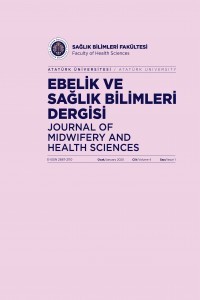Çocuk Kitaplarının Çocukların Başarı, Mutluluk ve Başkalarını Anlama Kavramlarına Bakışları Açısından İncelenmesi
Çocuk, Çocuk Edebiyatı, Felsefe, Kitap
ANALYZING CHILDREN'S BOOKS IN TERMS OF PERSPECTIVES OF THE CONCEPTS "SUCCESS, HAPPINESS AND UNDERSTANDING OTHERS”
Children, children's literature, philosophy, book,
___
- Akoğlu G, Ergül C, Duman Y. Etkileşimli Kitap Okuma: Korunmaya Muhtaç Çocukların Alıcı Ve İfade Edici Dil Becerilerine Etkileri. İlköğretim Online 2014; 13(2):622-39.
- Alkan Ersoy Ö, Bayraktar V. Okul Öncesi Dönemde Çocuk Edebiyatı Kavramı ve Çocuk Kitaplarının Özellikleri. A. Turla (Ed.) Okul öncesi dönemde çocuk edebiyatı. Her yönüyle okul öncesi eğitim 4. Ankara: Hedef CS Yayıncılık ve Mühendislik, 2014. p.155-88.
- Boğa Zengin S. Çocuk Kitaplarının Dinleme Becerilerini Geliştirme Aracı Olarak Kullanılması, Yayımlanmamış Yüksek Lisans Tezi, Gazi Üniversitesi Eğitim Bilimleri Enstitüsü, Ankara. 2010.
- Büyüköztürk Ş, Kılıç Çakmak E, Akgün ÖE, Karadeniz Ş, Demirel F. Bilimsel Araştırma Yöntemleri. 17. Baskı, Ankara Pegem-A Yayıncılık. 2014.
- Creswell JW. 30 Essential Skills for the Qualitative Researcher, Sage Publishing: Lincoln. 2017.
- Cohen L, Manion L, Morrison K. Research Methods in Education. Routledge. 2000.
- Halat AA. 5-6 Yaş Grubu Çocuklara Paylaşma, İş Birliği ve Sorumluluk Değerlerinin Kazandırılmasında Etkileşimli Kitap Okuma Tekniğinin Etkililiğinin İncelenmesi, Yayınlanmamış Yüksek Lisans Tezi, Gazi Üniversitesi Eğitim Bilimleri Enstitüsü, Ankara. 2017.
- Kangal A. Mutluluk Üzerine Kavramsal Bir Değerlendirme Ve Türk Hanehalkı İçin Bazı Sonuçlar. Elektronik Sosyal Bilimler Dergisi, 2013; 12(44):214-33.
- Lynch-Brown CM, Tomlinson CM, Short KG. Essentials Of Children’s Literature. Essex: Pearson. 2014.
- MEB 2023 Eğitim Vizyonu Belgesi. Erişim Tarihi: 21.05.2019
- Senemoğlu N. Gelişim, Öğrenme ve Öğretim, 25. Baskı, Ankara: Anı Yayıncılık. 2018.
- Sever S. Çocuk ve Edebiyat. 1. Baskı, Ankara: Kök Yayıncılık. 2003.
- Tanju EH. Çocuklarda Kitap Okuma Alışkanlığına Genel Bir Bakış, Aile ve Toplum, 2010; 11(6):30-39.
- Ulusoy A. Gelişim ve öğrenme. 8. Baskı, Ankara: Anı Yayıncılık. 2015.
- Uzmen S, Mağden D. Okul öncesi eğitim kurumlarına devam eden altı yaş çocuklarının prososyal davranışlarının resimli çocuk kitapları ile desteklenmesi. Marmara Üniversitesi Atatürk Eğitim Fakültesi Eğitim Bilimleri Dergisi, 2002; 15(15):193-212.
- Yavuzer H. Çocuk Psikolojisi. 38. Baskı, Ankara: Remzi Kitabevi. 2015.
- Yıldırım A, Şimşek H. Sosyal Bilimlerde Nitel Araştırma Yöntemleri. Ankara: Seçkin Yayıncılık. 2011.
- Yıldız Bıçakçı M, Er S, Aral N. Annelerin Çocuklarına Etkileşimli Kitap Okuma Sürecine İlişkin Görüşleri. Eğitim ve Bilim, 2017; 42(191):53-68.
- Yıldız Bıçakçı M, Er S, Aral N. Etkileşimli öykü kitabı okuma sürecinin çocukların dil gelişimi üzerine etkisi. Kastamonu Eğitim Dergisi, 2018; 26 (1):201-08. doi:10.24106/kefdergi.37586
- Yayın Aralığı: 4
- Başlangıç: 2018
- Yayıncı: Atatürk Üniversitesi Sağlık Bilimleri Fakültesi
Obstetride Aile Merkezli Bakım
Merve LAZOĞLU, Serap EJDER APAY
Akran İlişkileri Ölçeği: Ölçek Geliştirme Çalışması
S.seda BAPOĞLU DÜMENCİ, Figen GÜRSOY
Emin DEMİR, Müdriye YILDIZ BIÇAKÇI, Dilşat Nur BOSTAN, Gülsüm GÜNEŞ
Ebelik ve Hemşirelik Öğrencilerinin Etik Duyarlılıklarının İncelenmesi
Sultan ALAN, Şule GÖKYILDIZ SÜRÜCÜ, Ayşe ŞENOĞLU, Emine AKÇA
Hemşirelerin Kişisel Değerleri ile Etik Duyarlılıklarının Bazı Değişkenler Açısından İncelenmesi
